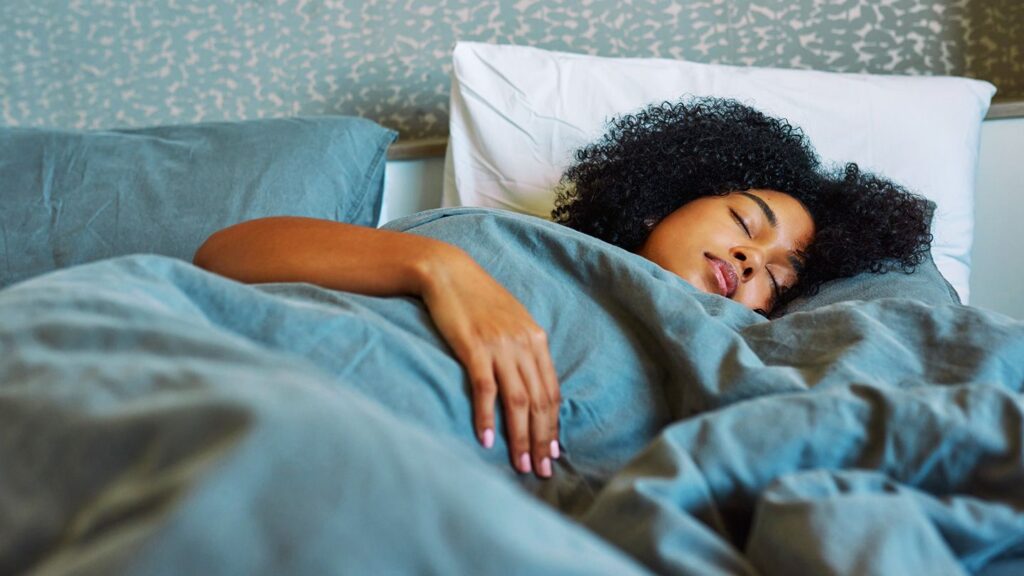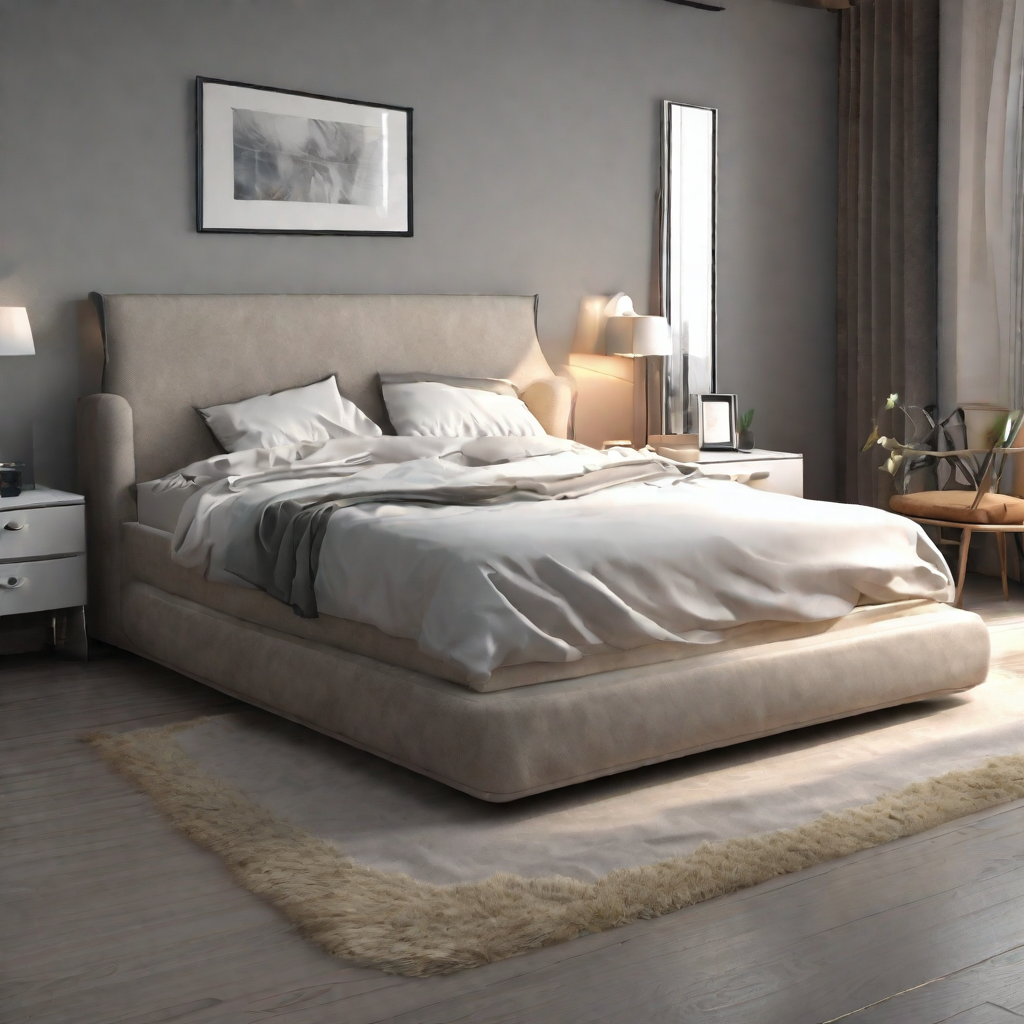
Are you struggling to fall asleep at night? Do you wake up feeling tired and groggy? Do you wish you could sleep better and feel more refreshed in the morning?
If you answered yes to any of these questions, you are not alone. Many people suffer from poor sleep quality, which can affect their health, mood, productivity, and overall well-being. Poor sleep quality can be caused by various factors, such as stress, noise, light, temperature, lifestyle habits, medical conditions, or even your mattress and pillow.
Fortunately, there are some simple and effective ways to enhance your sleep quality and enjoy a more restful and rejuvenating night. In this blog post, we will share with you some of the best tips and products to help you sleep better and improve your quality of life. Whether you need to relax your mind, adjust your environment, or optimize your sleep cycle, we have something for you.
Let’s dive in
Sleep is essential for our health and well-being. It is the time when our body and brain repair themselves, consolidate memories, regulate hormones, and prepare for the next day. According to the National Sleep Foundation, the average adult needs about seven to nine hours of sleep per night, but this may vary depending on individual factors such as age, lifestyle, and genetics.
However, many people do not get enough quality sleep or have trouble falling asleep or staying asleep. This can lead to various problems, such as impaired cognitive function, mood swings, weakened immune system, increased risk of chronic diseases, weight gain, and reduced life expectancy.
The good news is that there are many ways to improve your sleep quality and feel more rested and energized in the morning. Some of these methods involve changing your behaviour or habits, while others involve using certain products or devices that can help you sleep better. In this blog post, we will cover both types of sleep enhancers and explain how they work and how to use them.
Factors that influence sleep quality
The first step to improving your sleep quality is to understand what affects it. There are many factors that can influence how well you sleep, such as:
- Your circadian rhythm: This is your natural 24-hour cycle that regulates your sleep-wake pattern. It is influenced by external cues such as light and temperature, as well as internal cues such as hormones and genes. Your circadian rhythm determines when you feel sleepy and when you feel alert during the day.
- Your sleep hygiene: This refers to your habits and behaviours that affect your sleep quality. For example, your bedtime routine, your caffeine intake, your exposure to blue light, your sleeping environment, and your stress level.
- Your sleep needs: This varies from person to person depending on factors such as age, lifestyle, activity level, and health conditions. The average adult needs about 7 to 9 hours of sleep per night, but some may need more or less depending on their individual circumstances.
Tips to improve your sleep quality
Here are some of the most effective tips to enhance your sleep quality and get a better night’s rest:
1. Stick to a regular sleep schedule.
One of the best ways to improve your sleep quality is to go to bed and wake up at the same time every day. This helps your body clock or circadian rhythm to sync with the natural light-dark cycle and regulate your sleep-wake cycle. Try to avoid napping during the day, especially in the afternoon or evening, as this can disrupt your night-time sleep. If you do need a nap, limit it to 20 minutes or less and do it before 3 pm.
2. Avoid caffeine, alcohol, nicotine, and other stimulants before bed.
These substances can interfere with your sleep quality by keeping you awake or disrupting your sleep stages. Caffeine can stay in your system for up to six hours after consumption, so avoid drinking coffee, tea, energy drinks, or other caffeinated beverages in the late afternoon or evening. Alcohol can make you feel sleepy at first but can also cause you to wake up during the night or reduce your deep sleep quality. Nicotine is another stimulant that can keep you alert and make it harder to fall asleep or stay asleep.
3. Create a relaxing bedtime routine.
A relaxing bedtime routine can help you unwind and prepare your mind and body for sleep. You can include activities such as reading a book, listening to soothing music, meditating, doing some gentle stretches or yoga poses, taking a warm bath or shower, or using aromatherapy. Avoid activities that are stimulating or stressful such as watching TV, checking your phone or email, working, studying, or having heated discussions. These can keep your brain active and make it harder to fall asleep or stay asleep.
4. Make your bedroom comfortable and conducive for sleep.

Your bedroom environment can have a big impact on your sleep quality. Make sure that your bedroom is dark enough by using curtains. Create a comfortable sleep environment by investing in a supportive mattress and pillows, maintaining a cool temperature, minimizing noise disruptions, and reducing light exposure. Keep your bedroom tidy and technology-free, and choose comfortable bedding. These practices promote relaxation and improve sleep quality.
5. Limit your exposure to blue light at night

To improve sleep quality, limit exposure to blue light at night. Use device features or apps to reduce blue light emissions, avoid electronic devices before bedtime, dim the lights, and establish a relaxing bedtime routine. These practices help signal your body to wind down and promote better sleep.
Products to help in sleep enhancement
There are several products available that can help enhance sleep. Here are a few examples:
White Noise Machines:
These devices produce soothing sounds, such as rain, waves, or fan noise, to mask disruptive sounds and promote a more peaceful sleep environment.
Sleep Trackers:
These devices, often worn as wristbands or placed under the mattress, monitor your sleep patterns and provide insights into your sleep quality. They can help you track and optimize your sleep habits.
Aromatherapy Diffusers:
Using essential oils like lavender or chamomile in a diffuser can create a calming atmosphere and promote relaxation, leading to better sleep.
Weighted Blankets:
These blankets are filled with small glass or plastic beads to provide gentle pressure, which can help reduce anxiety and promote a sense of comfort and security during sleep.
Sleep Masks:
These masks block out light and create a dark sleep environment, which can be particularly helpful for individuals who are sensitive to light or who sleep during the day.
Cooling Pillows or Mattress Toppers:
These products are designed to regulate body temperature during sleep, keeping you cool and comfortable throughout the night.
Blackout Curtains or Blinds:
Installing these in your bedroom can effectively block out external light sources, creating a dark and sleep-friendly environment.
In conclusion, while the recommended products can be helpful, it’s important to address any underlying sleep issues or consult with a healthcare professional if you’re experiencing chronic sleep disturbances. Building a consistent sleep routine, practicing good sleep hygiene, and creating a conducive sleep environment are essential components of healthy sleep habits.